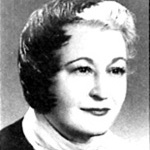 Professional ethics of the nurse
Professional ethics of the nurse
In daily activities, according to official duties, the professional ethics of a nurse comes to the forefront of skill. It is in the observance of ethical principles in any situation that the nurse demonstrates her high professionalism.
In 1996, the Association of Nurses of Russia developed and adopted, and in 1997 approved by the Problem Commission on Nursing of the Office of Educational Institutions of the Ministry of Health, the Code of Ethics for Russian Nurses .
According to the Code of Ethics, the documents on which it is based, and the current state of affairs in medicine, a sister is not only an executor of medical prescriptions. Nursing is an independent profession. Its representatives have both the skills of complex patient care and a sufficient level of knowledge in the field of communication psychology and pedagogy.
We have already talked about medical bioethics , but now it would be useful to recall the basic concepts.
Ethics (from the Greek "ethos" - custom, temper)- the science of morality, which determines the norms of behavior and moral relationships of people.
Medical ethics is a set of norms of behavior and moral standards of a medical worker, including a sense of duty, honor, conscience, and dignity. Medical ethics presupposes high culture, philanthropy, moral and physical cleanliness.
The basis of the Code of Ethics for a nurse in Russia is such ethical components of the philosophy of nursing as duties , values and virtues . Let's consider each component in more detail.
I. Responsibilities of a nurse (professionalism)
The nurse is required to:
- respect the patient
- respect the patient's right to self-determination;
- to tell the truth;
- to do good;
- do no harm;
- be able to make independent decisions;
- to be a person dedicated to his profession;
- have responsibility.
II. Values (desired goals)
The desired goals for a nurse should be:
- professionalism;
- effectiveness;
- dignity;
- health;
- harmony.
III. Professional virtues (personal qualities)
The nurse must have:
- knowledge;
- wisdom;
- compassion;
- patience;
- responsibility;
- mercy;
- ability to cooperate.
Along with deontology - the science of medical debt - the professional ethics of a nurse presupposes rules of conduct and relationships with others. According to these rules, the nurse is obliged to:
- strictly observe subordination (subordination of the junior medical team to the senior one, in accordance with the principles of service discipline);
- prevent and suppress the dissemination of confidential and proprietary information;
- not allow and suppress the discussion of medical problems in the presence of patients and their relatives;
- not to allow clarification of relations between colleagues in the presence of patients and their relatives;
- maintain friendly, tactful and polite relations with patients and their relatives;
- have the patience to listen to the patient and his relatives, to understand their experiences;
- support patients and their relatives in difficult times;
- maintain restraint, calmness and tact in the performance of their professional duties;
- act professionally within their competence.
The daily behavior of a nurse, the style of her work depend on many factors. Here and the attitude to the profession, and personal qualities, and the general corporate culture of a particular medical institution. Unfortunately, one often has to deal with the emotional and moral indifference (indifference, indifference) of nurses.
Often, unseemly acts that are contrary to the norms of the Code of Ethics, nurses try to justify the economic situation, the presence of deep personal problems and other factors. However, the true professional ethics of a nurse is guided by the fact that in such situations there are simply no circumstances justifying unethical behavior.





